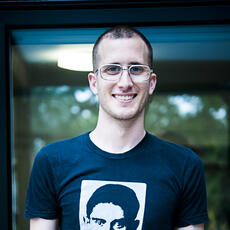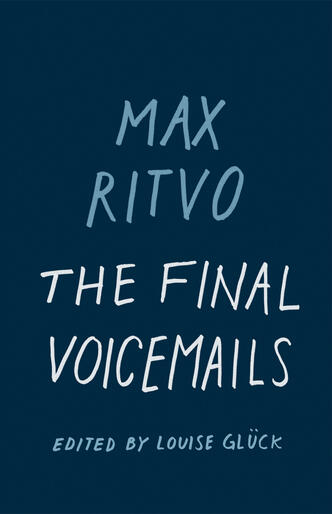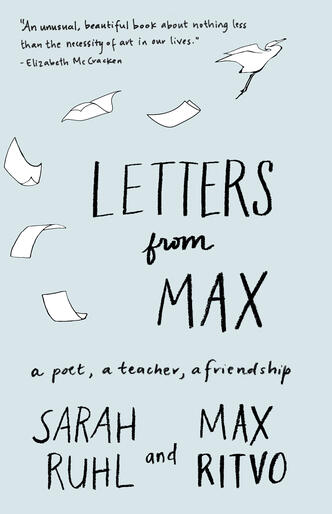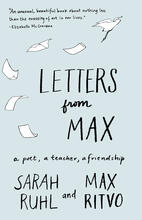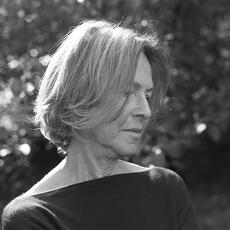Excerpt: The Final Voicemails by Max Ritvo
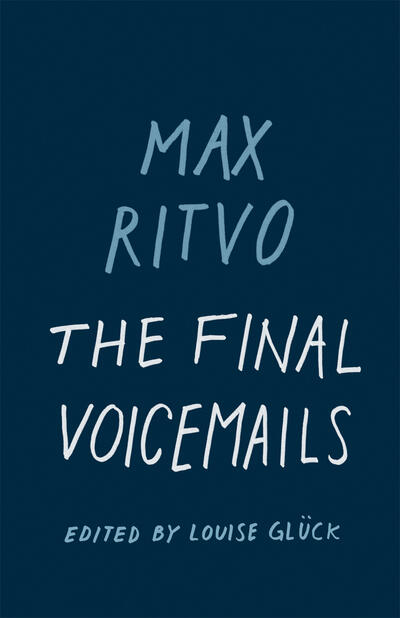
EDITOR’S NOTE
Max Ritvo was a prodigiously gifted poet; toward the end of his life, he was also volcanically productive. Nothing he wrote was without flashes of brilliance, but many of these late poems would surely have been revised or jettisoned; it was slow work to sift out the very best. This he asked me to do—it seemed to me an essential labor lest the weaker poems dilute the stronger. What follows, obviously, reflects my judgment. Nothing has been revised; Elizabeth Metzger, Max’s designated literary executor, suggested one minute cut.
I have chosen to include with these late poems a slightly abbreviated version of Mammals, Max’s extraordinary undergraduate thesis. Some of these poems were imported to enlarge Aeons and Four Reincarnations; they are included here in their original forms, partly because they shape Mammals and partly because the small adjustments seem to me interesting. These poems also serve as a general reminder to readers, and to poets, that the work of twenty-year-olds is not necessarily practice work.
Cancer was Max’s tragedy; it was also, as he was canny enough to see, his opportunity. Poets who die at twenty-five do not commonly leave bodies of work so urgent, so daring, so supple, so desperately alive.
This book has no dedication. Had he lived, I feel certain Max would have wished to honor his wife, Victoria, who gave his last years rare intensity and joy. He would have wished to thank his closest peer, Elizabeth Metzger. And always and ultimately his remarkable mother, Riva Ariella Ritvo, whose resourcefulness and passion bought him more time than he might otherwise have had. His teachers he thanked repeatedly in his magical work.
THE FINAL VOICEMAILS
1
I was told my proximity
to the toxin would promote
changes to my thinking, speech, and behavior.
My first thought was, of course,
for the child, the little girl,
but graceful, silent figures
in white suits flitted to her
and led her away by the shoulders, like two friends
taking a turtle from a pond.
My second thought was about pain,
the last thing visible
without our manners—
Or could there be an invisible peace
once the peace of the senses departs?
2
I’m glad she’s gone, and not just for her sake:
without her I feel somehow better equipped
to be what I am becoming—
which is, I suppose, preoccupied.
Nobody ever tells you how busy loneliness is—
Every night I cover the windows in soap,
and through the night I dart
soap over any lick of light
that makes its way to my desk
or bed or the floor.
At first it was fear—an understanding that the light
was death, was the toxin,
though really the toxin was invisible,
they said, and came from the water.
But work blesses fear
like a holy man blessing a burlapped sinner,
saying It is for you and Because of you,
and in time the working mind
knows only itself, which is loneliness.
3
Dim sight now,
and each twitch flows
into a deep, old choreography.
Maybe a week ago, my arm banged the faucet,
and I danced
in the middle of the bathroom—
the entire final dance
from the tango class we took
at the gym in New Haven,
with the air as you.
I wasn’t picturing you,
I didn’t smell your damp hair—
don’t imagine that I’m living
in memory.
Whatever I am, it is good at cutting meat.
The trick is: That’s blood.
If you focus your fingers on feeling it,
you cannot mistake yourself for the animal,
who cannot feel; you never cut yourself
if you give your life to the blood you shed.
4
I know you’ve been waiting for disintegration,
but it just doesn’t seem to be coming.
I need to go out to gather some berries.
No more meat: I’ve adopted your diet.
All this time, I thought my shedding
would expose a core,
I thought I would at least know myself,
but these mild passions, all surface, keep erupting now
like acne—or like those berries on a bush.
Don’t ask me to name them—
I’ve never been that kind of guy.
Red berries—sour, sticky.
If you really want to know,
come here, just try them.
Red as earth,
red as a dying berry,
red as your lips,
red as the last thing I saw
and whatever next thing I will see.
NAME MY TIME OF DEATH AND SEE WHAT I DO TO YOU
Time’s up. Break’s over. So I put the doctors on the floor again
and ask them for a diagnosis.
I’ve been keeping the doctors in line
on a little tan balance beam—
Whenever they reach the end I pluck them
up by the collar.
There’s a little sadist in me—or boys
will be boys. I think I just got tired
of bad news, and each time
less air getting into my lungs.
Over time, I’ve corrupted their gaits.
Now it’s their floor time. I command the docs to circle me
and with prognostic spoons plug up the holes
where they used to show me my body.
But their legs can only slam forward, crimped
and insanely looped like mine.
Down they bash into the ground,
screaming like a baby realizing it’s a monkey.
The diagnosis comes in underwhelming:
We can’t tell if you’re going to live
or if the background image
looks an awful lot like you.
My milk is running brown, but what they’re calling
cells in it are more like feathers up close.
I think there’s something in me
more horrible than they’re detecting—
I think I’d kill to stay alive,
at least myself,
and if you can’t accept that
you don’t know the angel in my blood.
What if I ran out of a body to give you?
What would you let me take from you?
A star, a raft, a bloody cloth, a bloody cloud,
my body, my body, I’m running for you only,
and my fear is the most beautiful thing I have ever seen.
YOUR NEXT DATE ALONE
The stage is empty.
How do you fill it?
With music.
The words will be the play,
and the tune will be the body
carrying the words,
shaking with tears
the towel torn
so what he’d like hidden
is exposed—
where his flesh is like a bruised heart.
If you wish to see me
you’ll have to sing.
I will soon have none
of the ways earth plays
along with the soul:
no grass, no wind.
“The Final Voicemails” was originally published by Parnassus. “Name My Time of Death and See What I Do to You” was originally published by the Yale Review. “Your Next Date Alone” was originally published by Horsethief.
